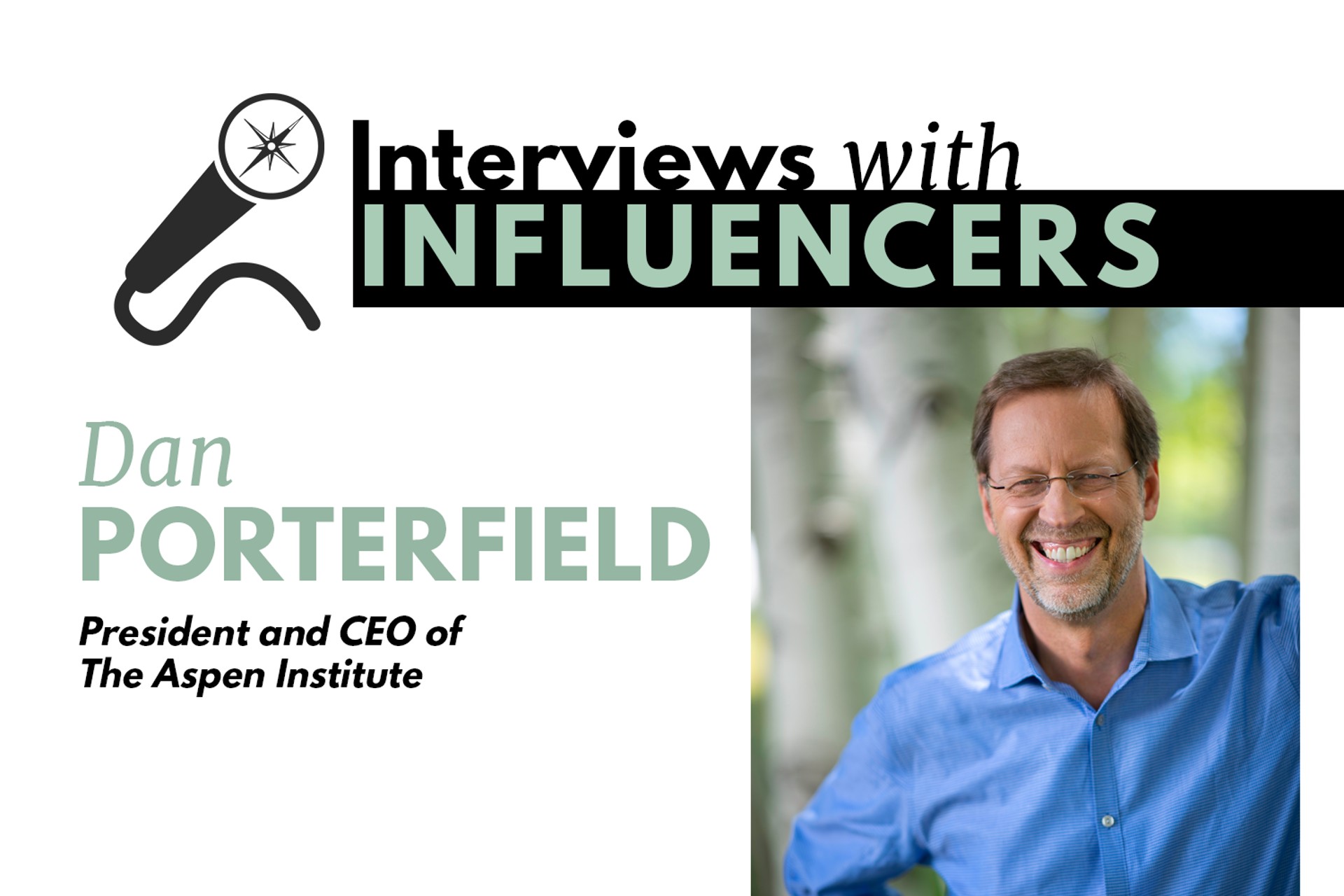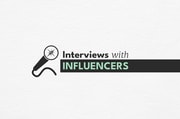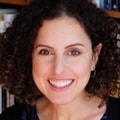Interview Published December 4, 2018 · 14 minute read
Interviews with Influencers: Dan Porterfield
Nicole Siegel

He’s been named a “Champion of Change for College Opportunity” by the White House, is the recipient of a lifetime achievement award from the “I Have A Dream” Foundation, and was honored with the KIPP Foundation’s “Beyond Z” award celebrating individuals that have gone above and beyond to improve the lives of children. Those honors scratch the surface of the recognition deserved by Dan Porterfield for his contributions to education and public service over the last 25+ years. From his time as a professor and senior vice president at Georgetown University and his leadership as President of Franklin & Marshall College, to his current role as President and CEO of The Aspen Institute, Porterfield has demonstrated a commitment to expanding educational access and opportunity. We were thrilled to sit down with him for the latest in our Interviews with Influencers series. The conversation left us inspired, and we’re certain it will leave you feeling the same way!
Q: As an undergraduate student at Georgetown University, you established the D.C. Schools Project. 34 years later the program continues to be incredibly successful, with 150 college-aged tutors serving more than 300 students, their families, and members of the immigrant community throughout D.C. through a variety of support services. What was the impetus for establishing this program?
A: The impetus for launching the program was the incredible human need and the moral drama of families mostly from El Salvador and Guatemala that had recently immigrated to the United States. They were unable to live safely in the midst of civil strife, and in many cases they walked from Guatemala or El Salvador, rode on the rooves of trains, hitchhiked with their kids and got themselves to America. At the time (in 1984), Washington, D.C. was a magnet for families from El Salvador because there had been a Salvadorian migration into the city 15 years prior. There was a real crisis in DC Public Schools (DCPS) where something like 100-150 new students from El Salvador were showing up nearly every week. They arrived traumatized by the trip, with difficult memories from home having to do with the war, a variety of public health problems, often behind several grades or more in Spanish (never mind in English). The public schools were feeling overwhelmed and, at the same time, highly empathetic.
“There’s talent in every zip code and in every community.”—@DanPorterfield
Georgetown reached out to the DCPS Office of Bilingual Education and said they had a recent graduate (me) who would help create a program if they were interested. We ended up building a program that would allow Georgetown students to work in the homes and schools of newly arrived immigrant families with children. As many of the families did not have legal status, there was some concern they wouldn’t welcome outside support. But the families so greatly valued education, loved learning, and believed in a better life for their children, that it worked.
Q: In your inaugural address as president of Franklin & Marshall College, you note that with two former educators as parents, “The Porterfield kids grew up in a home brimming with ideas, writing, creativity and civic engagement.” If the walls of your childhood home could talk, what are some of the most important life lessons they’d share?
A: Growing up, we had pictures of Dr. Martin Luther King, Jr. and copies of Ebony Magazine dedicated to his work scattered around the house. It was as if he was a family friend of my parents, or a member of the family – that’s how I came to know him as a child. So that’s one thing the walls of my childhood home would offer.
My parents divorced when I was young, and from that divorce came both the difficulty of the family changing, which is so hard on children, but also some very positive life lessons. My parents cooperated fully in the raising of my sister Kate and me. My father paid child support while going to college, and my mom went back to college in her 30’s. She attended school in the evenings at Towson University, while still teaching during the day. She received her bachelor’s degree and then went on to pursue her master’s degree in history at the University of Maryland (UMD). People told her she was a great student and encouraged her to get her PhD, and so she did while I was in college. She really rewrote the history of the American West through women’s experiences, which of course came out of her own experience – a perspective that gives us a more whole understanding of who we are as a people. That is one of the great values of providing educational opportunities to all – understanding of our country, our history, our people, our past, and our cultures are more enriched when more people have access to education.
Q: During your seven-year tenure as president of Franklin & Marshall College, the proportion of incoming Pell Grant students nearly tripled and the proportion of incoming students of color (from the United States) more than doubled. What would you tell other leaders or naysayers who say it isn’t possible to make and implement this kind of commitment?
A: Well – the possible has been proved! Just look at the results. Franklin & Marshall College has a deeper and stronger student body today because we expanded opportunity, which in turn helps all students. The grades, retention rates, graduation rates, graduation with honors, and national fellowships won for Pell Grant students are at or above the student body as a whole. There’s talent in every zip code and in every community. There are high schools, regions, scholarship programs, families, and employers that are helping provide opportunities to kids to help them to learn and develop the greatness within them. Higher education simply has to get outside its patterns of traditional recruitment and go out there and discover where talent is being cultivated well. When you do that, it’s joyful. You’re joining a partnership with schools and access programs, the baton is passed. You learn the history of how a school was founded, how a family got there—you become a partner in the great American dream of upward mobility, and shared responsibility for the future of our country. The commitment of making Franklin & Marshall more equitable isn’t simply a way to be a school, rather it’s a way to be an American institution and participate in our national future.
“Higher education simply has to get outside its patterns of traditional recruitment and go out there and discover where talent is being cultivated well.” —@DanPorterfield
Q: With the rising cost of attending college and only a 50-50 shot at graduating, a number of headlines in the press are questioning: “is college worth it?” How would you answer that question?
A: College is worth it at about 17 levels. For the personal, it’s to cultivate and tap into what’s great within each individual. For the family, it’s the chance to support a child in their journey through life- which is itself the greatest reward a parent can have. For the community, it’s the chance to enable the development of the young and have the community’s presence be amplified. For our region, it’s a chance to develop a civic population that’s engaged and fulfilled. For society, education is the means by which we renew ourselves everywhere – spiritually, personally, economically, democratically. For our globe, it is the framework that allows us to be a civilization – to try and care for our fragile planet and have some shaping power in creating the civilization of tomorrow. So, I literally think education impacts everything from the individual learner all the way to the whole world. You can never understate the power of helping someone else get an education. Because when you get an education, everyone benefits. In fact I could argue that my children who have grown up in a secure economic framework would better benefit from everyone else getting an education – because now they can share the world with all of these other people. Education is the one resource that when others get it, you gain as well.
“The commitment of making Franklin & Marshall more equitable isn’t simply a way to be a school, rather it’s a way to be an American institution and participate in our national future.” —@DanPorterfield
Q: You’ve likened the Aspen Institute to “the Force” in Star Wars. And it’s no wonder with its over 57 different program areas and initiatives, partners spread across the world, and hundreds of convenings annually bringing together thinkers and leaders. What are the greatest challenges of leading an organization that’s doing work on such a mammoth scale? And what are you most looking forward to?
A: The same thing. The greatest challenge for any people-serving work is to genuinely and whole-heartedly push to achieve the greatest possible outcomes and results. Mission driven people (like all of those working at the Aspen Institute) want to make an impact, that’s why we’re doing what we do. The opportunity, the hope and the challenge, is to create work that frames problems inclusively, bringing all voices to the table, in order to see the problem in its whole light. And only then to purposefully, energetically, and optimistically organize ourselves to set goals that lead to results. Results have a multiplier effect. The more results there are, the more excited people get to see them. That’s the challenge, and that’s also the opportunity – how to harness the resources of this incredible institution so that our impact for good in creating a sustaining democratic society is even better tomorrow than it has been in the past.
Q: Who are your influencers—in education and beyond?
A: There are many. I would say my influencers are, in no particular order, starting with a few former Franklin & Marshall students: Akbar Hossain, an immigrant from Bangladesh via Saudi Arabia whose family came here, created an American dream, was educated at Franklin & Marshall, and is giving back now as a highly principled attorney. Markera Jones who grew up in a segregated community, attended a segregated school, came to college at F&M, achieved incredible things academically and is now pursuing her PhD in community psychology. In a different way, Michael Penn, Professor and Associate Chair of Psychology at F&M who for more than 30 years has been teaching so inclusively that his classes have become harmonious communities of the many – with a feeling of oneness.
“You can never understate the power of helping someone else get an education. Because when you get an education, everyone benefits.”—@DanPorterfield
At the leadership level, I think of influencers like Carol Quillen, the President of Davidson College. She is a thoughtful, engaged listening leader working to move an institution forward in multiple ways. And at the level of policy and leadership, John King (former Secretary of Education) comes to mind. No matter what job he’s been in, he has always stood for and worked for educational excellence and opportunity. His efforts blow me away. He’s helped to create the renewal of the use of Pell Grants to educate prisoners, among many other accomplishments. All of those figures inspire me. From my mom who went to school at night to get her degree, to the students I’ve taught at Georgetown and Franklin & Marshall College whose reach and hope I love, to highly principled public figures like Carole Quillen and John King, I’m inspired.
“Education is the one resource that when others get it, you gain as well
.”
—@DanPorterfield
Q: What’s the best advice you’ve ever received?
A: I don’t know exactly who gave me the advice, but it came in the form of coaches and teachers when I was in middle school. When I was in 5th and 6th grade at Northwood Elementary School, a traditional public school in Baltimore, MD, I felt a great sense of home and community. And I remember crying at graduation because I loved that school so much. After I graduated, I was assigned to go to a middle school in a different neighborhood. The school sent a letter to my mom saying the school system was experiencing financial difficulties and as a result the children were going to attend school in shifts. I was only going to go to school for 3.5 hours a day and my mom was a working mother – it was clear there was no accountability to her from the school system. She was stuck. What was she supposed to do? Have her 7th grade child hang around the house unaccompanied? That made no sense. She hustled and scrambled and in a just a weeks’ time was able to get me into a private school in Baltimore County. I took a couple of buses to get there, and I was really different. I was the urban kid. I wore different clothes–platform shoes, bow ties, I listened to different music, and played different sports. So I had to enter into this new environment where it felt like everyone was super wealthy, and I was the outsider. I was really far behind academically. It was a culture change. It was hard. There were nights I would come home very upset – not having any friends, not knowing the schoolwork, not looking like everyone else. And the advice I was given then by coaches and teachers and by my parents was you have to believe in yourself and push forward. If you believe in yourself, everything else is possible. You can create your education and create your life. That advice received at a very difficult time, made all the difference in my life.
“Mission driven people want to make an impact, that’s why we’re doing what we do. The opportunity, the hope and the challenge, is to create work that frames problems inclusively, bringing all voices to the table, in order to see the problem in its whole light.” —@DanPorterfield
Q: What personal ventures are you currently working on that excite you?
A: I’m writing a short set of essays exploring “meaning-making” in liberal arts education. The essays will tell the stories of extraordinary students like Fatou Keita and Ashley Christopherson so that readers (young and old) can appreciate why it matters to give students access to the very finest education. To explore the moments of growth – interior movement towards the greater ability to find oneself in life and have a voice. As a mentor of newly arrived Americans, and as an organizer of community engagement programs at Georgetown, my journey moved from developing myself to focusing on shaping institutions. The book will dig into what it means to be a citizen today in this country and this world, and how we can develop ourselves as citizens in a way that’s deeply fulfilling and empowering. The critical thing about this approach is that there are a million theories of government – theories of a democratic society – and oftentimes those theories tend to make individuals feel small and insignificant. I want to flip that and uncover how we make ourselves work as citizens - everyone has the power to do that.
Q: Are there any F&M traditions you’re hoping to adopt at Aspen?
A: We’ve actually already adopted a few. One is called the “common hour.” At F&M, we’d gather every week to hear a speaker in the middle of the day. At the Aspen Institute, we are holding common hours on a monthly basis where we all gather around a major topic to see ways that we are colleagues as part of much bigger work than each individual project we’re working on. The common hour allows all folks from the organization to come together and share ideas about common ideas and goals – all of that adds value to people-serving work.
At Georgetown, I had a white ice cream freezer brought into my office when I was teaching because the work we were doing was so important and I wanted to make sure the students knew I wanted them to come into my office. And then when I went to Franklin & Marshall, on my first day of work I wheeled in a sleek black “Maserati” of ice cream freezers and set that up in the President’s Office. It encouraged students to come by the office and even if I didn’t see them, they knew they were welcome. So now I’m thinking about (and looking for) a blue ice cream freezer to bring to the Aspen Institute.

